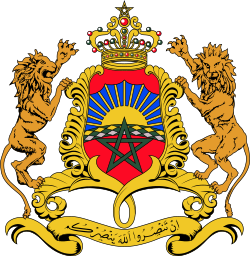 |
|---|
| Judiciary |
Ministry of Energy Transition and Sustainable Development is a Moroccan Ministry charged with implementing national strategies in the fields of geology, minerals, hydrocarbons and energies, and building the necessary human competencies in these fields. [1] The current minister is Leila Benali. [2]